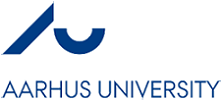Economics

Winter intake start date
2026-02-01
Winter intake deadline
2024-10-15
Introduktion
Internationally Renowned Research Environment
The two-year MSc programme in Economics gives students an in-depth familiarity with a range of economics and management disciplines. The programme is flexible, as students can specialise in a specific field or a combination of economics and management.
Researchers within the programme work in the fields of finance, macroeconomics, microeconomics, econometrics, and economics of business. The MSc programme allows students to create a personal academic profile within one or across several of these fields. Progress in the chosen courses is closely followed and monitored to ensure the students’ academic development. Each semester, the department offers about 25 elective courses. The broad range of courses allows you to specialize in a particular field of interest and to compose an individual course programme.
The courses are taught on a high level and require that students are interested in and are thoroughly versed in mathematics, econometrics, and economic theory.
In the Company of Nobel Laureates
Students enrolled in the programme are based at the Department of Economics and Business Economics. The department is renowned for setting high academic standards, and the department engages in close collaboration with many leading international researchers, including Nobel Laureates Dale T. Mortensen (February 2, 1939 – January 9, 2014) and Robert F. Engle. The department’s outstanding research environment includes the Center for Research in Econometric Analysis of Time Series (CREATES), where Nobel laureate Robert F. Engle serves as member of the advisory board.
International Diversity
The academic environment at the department is characterized by international diversity: more than one-third of faculty members and PhD students have an international background. The international atmosphere provides the basis for an enriched and challenging student life.
A Personal Academic Profile
The department conducts research and teaching in the following fields:
- Finance
- Macroeconomics
- Microeconomics
- Econometrics
- Economics of Business
The degree programme allows students to create a personal academic profile within one or across several of these fields. There is a compulsory progression in the chosen courses, which ensures students' academic development. Each semester, the department offers about 25 elective courses. The broad range of courses allows you to specialise in a particular field of interest and to compose an individual course programme.
Na studia magisterskie mogą kandydować wszyscy, którzy ukończyli studia licencjackie lub inżynierskie (studia I stopnia), studia magisterskie lub studiują na ostatnim roku studiów I-stopnia. Studia, które planujesz powinny mieć zbliżony profil do tych obecnych lub ukończonych, ponieważ w procesie rekrutacji kluczowa jest ich zgodność programowa.
Wykaz punktów ECTS – osoby, które są jeszcze w trakcie studiów, muszą załączyć wypis punktów ECTS, w którym będzie wykazane, jakie przedmioty były realizowane na studiach oraz ile punktów za nie otrzymano.
Dyplom ukończenia studiów licencjackich lub inżynierskich – jeśli jesteś absolwentem wyższej uczelni, nie potrzebujesz wypisu, wystarczy załączyć dyplom ukończenia studiów wraz z suplementem (w języku angielskim lub oryginał z tłumaczeniem)
Course description - należy przygotować dokument, zbierający cały sylabus ze studiów licencjackich. Takie sylabusy najczęściej są do pobrania na stronie uniwersytetu. Należy je przetłumaczyć na język angielski (można samodzielnie) i złączyć w jeden dokument. Warto też zapytać w dziekanacie uczelni, czy nie dysponują wersją angielską.
Oficjalna skala oceniania Twojej uczelni - możesz dostać taki dokument w dziekanacie Twojej uczelni lub skonstruować samodzielnie. W obu przypadkach dokument powinien zawierać pieczątkę dziekanatu.
Spełnienie wymagań w zakresie języka angielskiego można udokumentować w jeden z następujących sposobów:
IELTS – 6.5
TOEFL – 83 (Aarhus University TOEFL kod - 8935)
Uwaga: wymagania językowe mogą ulec zmianie. Przed wysłaniem aplikacji upewnij się jakie są wymagania językowe na konkretny kierunek bezpośrednio na stronie uczelni.
W przypadku zdawania certyfikatu IELTs upewnij się, czy uczelnia oprócz wymagań oceny końcowej nie ma również wymagań odnośnie ocen cząstkowych.
General admission requirement
You must have a bachelor's degree or equivalent that is comparable to a Danish bachelor's degree in both level and duration (180 ECTS).
You can be admitted to the master's programme if the university assesses that your education has a level, scope, and content that corresponds to the academic requirements specified below.
| Subject area | Number of ECTS |
| Microeconomics | 20 |
| Macroeconomics | 20 |
| Statistics and Econometrics | 20 |
| Accounting, Finance and Investment | 20 |
| Mathematics | 15 |
| Total | 95 |
